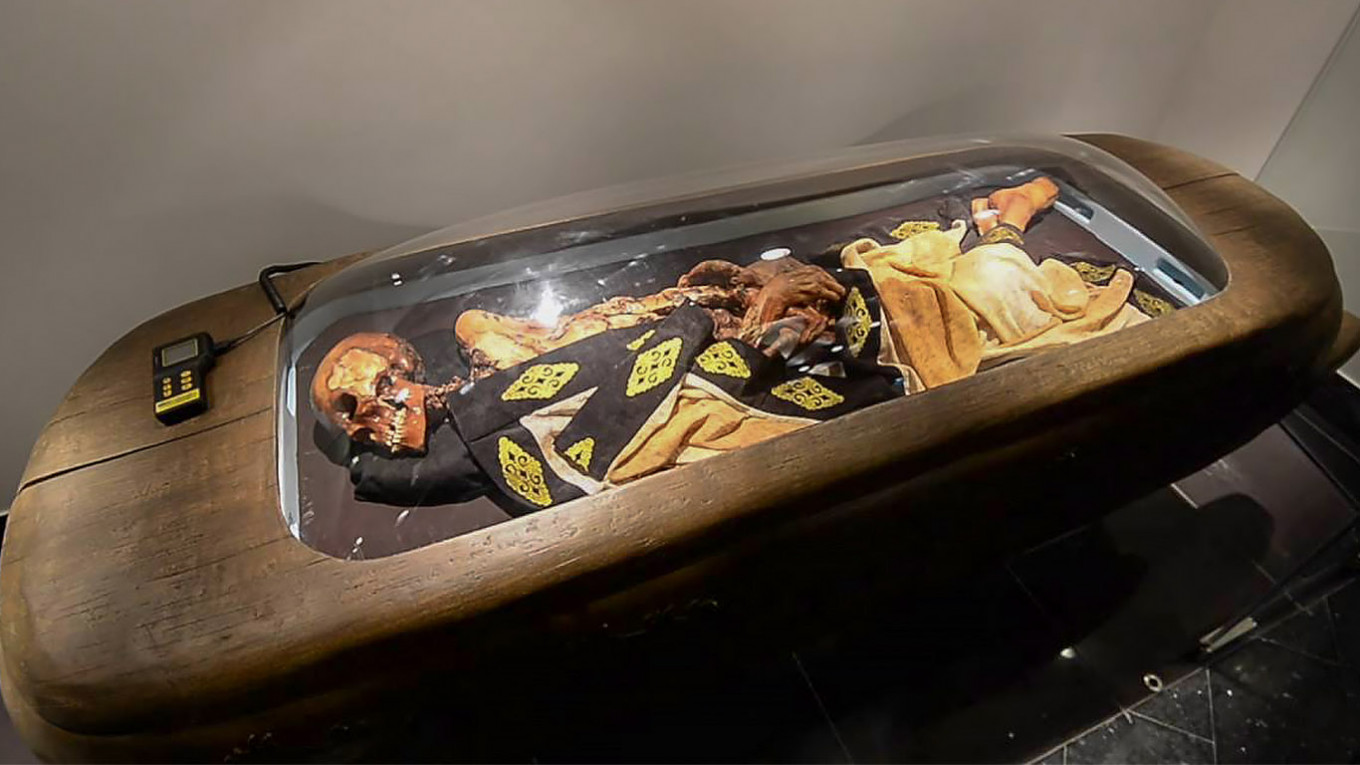As the coronavirus continues to spread across Russia at a record rate, the Altai region in southern Siberia, home to roughly 220,000 inhabitants, is the country’s only region where zero cases have been identified.
If we were to ask regional officials exactly how Altai has managed to stave off the virus, we might expect them to point to strict quarantining, well-measured social distancing or immaculate hand sanitization — but certainly not the protection of an ancient mummy, right?
Wrong.
The region is actually immune to the virus thanks to the divine protection of Princess Ukok, an Iron Age mummy whose local tomb was excavated in 1993, regional deputy Yerzhanat Begenov said Wednesday.
The mysterious mummy, also known as the Siberian Ice Maiden and Altai Princess, was a young woman from the nomadic Pazyryk tribe, a close relative to the Scythian peoples who populated the Eurasian steppes from roughly the 7th-3rd century B.C.
She became famous worldwide for her well-preserved tattoos and mysterious identity. She was buried alongside decadent ornaments and six horses, leading researchers to believe she may have been a priestess or healer during her life.
Her 1993 excavation from the Siberian permafrost was surrounded by controversy, with many locals warning that removing her remains from her tomb would ignite revenge from beyond the grave. A major earthquake that hit the Altai region shortly after her remains were moved to Novosibirsk seemed to prove their point.
Princess Ukok returned to Altai in 2012 and has lived in a special mausoleum in the Anokhin National Museum in Gorno-Altaisk ever since. Much like any horoscope-loving millennial woman in 2020, her remains can only be viewed during certain phases of the lunar cycle.
Since then, she’s allegedly had a hand in other world affairs — with locals even saying she might have cursed Hillary Clinton and caused her to lose the 2016 U.S. presidential election.
Although Begenov was adamant about the mummy’s role in keeping Altai virus-free, he also stressed the need for residents to adhere to strict self-isolation.
Because even ancient spirits can’t sanitize every single shopping cart.
A Message from The Moscow Times:
Dear readers,
We are facing unprecedented challenges. Russia's Prosecutor General's Office has designated The Moscow Times as an "undesirable" organization, criminalizing our work and putting our staff at risk of prosecution. This follows our earlier unjust labeling as a "foreign agent."
These actions are direct attempts to silence independent journalism in Russia. The authorities claim our work "discredits the decisions of the Russian leadership." We see things differently: we strive to provide accurate, unbiased reporting on Russia.
We, the journalists of The Moscow Times, refuse to be silenced. But to continue our work, we need your help.
Your support, no matter how small, makes a world of difference. If you can, please support us monthly starting from just $2. It's quick to set up, and every contribution makes a significant impact.
By supporting The Moscow Times, you're defending open, independent journalism in the face of repression. Thank you for standing with us.
Remind me later.






